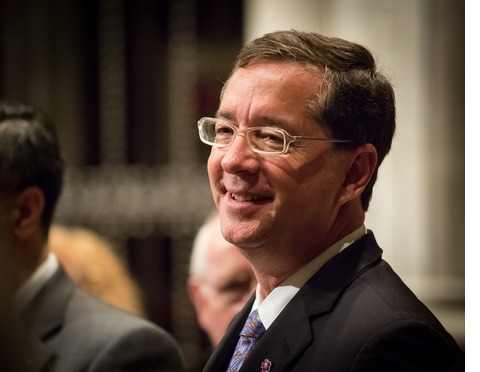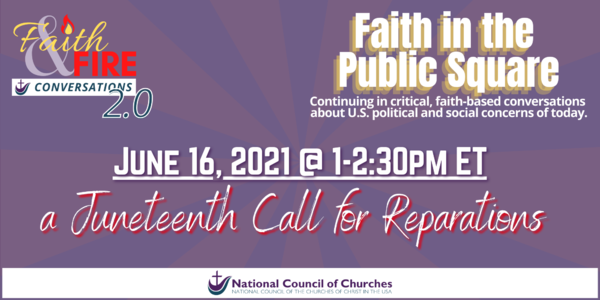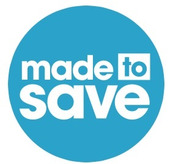| Prospering, Voting Rights, and the Return of Faith & Fire NCC Newsletter June 11, 2021 |
| | | Years ago, I served as an executive in a member denomination of the National Council of Churches. The agency I led was small in size and budget and our staff was among the lowest paid of the various agencies.
Fortunately, we were able to provide the staff with decent, by no means extravagant, health insurance and pension contributions.
Nevertheless, I regularly and repeatedly heard from the denominational finance people that our benefits were too rich, that many clergy and lay employees, particularly in local churches, did not enjoy equivalent health care and pension benefits.
There was no doubt that I was intended to feel guilty, to feel bad, about having the kind of health care and pension benefits that should be the norm. My repeated response was that the decent benefits national church staff had should be the norm and not portrayed—falsely—as extravagant. My argument was unpopular.
Despite the fact that eight consecutive general conferences of my denomination had called for comprehensive health care reform, when the Affordable Care Act (ACA) came before the Congress a huge backlash developed against it. The ACA didn’t even meet the standards called for by the highest decision-making body of my church—it didn’t provide health insurance for everyone nor did it include the kind of basic benefits we felt everyone deserves—yet it was viewed as being too controversial.
I share all this because it seems to me there is a tendency we humans have to too often engage in a race to the bottom. If I don’t have something, then I don’t want you to have it either. This is as old as the scriptures. You will recall that Cain was jealous when he perceived God gave greater appreciation to Abel and therefore, he killed his own brother and denied he had any responsibility to care for him.
I relate all of this because I have just read an excellent book that I commend to you: “The Sum of Us: What Racism Costs Everyone and How We Can Prosper Together” by Heather McGhee, senior fellow at Demos, a think tank.
Ms. McGhee relates dozens of examples of who we, particularly in the White community, work against our own interests because of anti-Black racism. For example, to thwart Blacks from having legally mandated access to public swimming pools many cities destroyed their community pools and abolished their parks departments. Many White families removed their children from public schools, created so-called “Christian academies,” and underfunded public schools rather than have their children be educated alongside Black children. Many union members undermined their own interests rather than organize in concert with Black and Brown people. The list goes on and on and on.
Not only do we do this to ourselves and to one another, powerful interests foment division among us. Heather McGhee writes, “To a nation riven with anxiety about who belongs, many in power have made it their overarching goal to sow distrust about the goodness of the Other. They are holding on, white-knuckled, to a tiny idea of We the People, denying the beauty of what we are becoming. They’re warning that demographic changes are the unmaking of America. What I’ve seen on my journey is that they’re the fulfillment of America. What they say is a threat is in fact our country’s salvation—for when a nation founded on a belief in racial hierarchy truly reject that belief, then and only then will we have discovered a New World.”
We only prosper together. This, too, is the message of our faith.
|
| | | Advocacy Call for Action: For the People Act |
| | Last Wednesday, NCC Chief Operating Officer Rev. Dr. Leslie Copeland-Tune did what people of faith do best, “to stand for justice and righteousness in our land.” While speaking at a press event with other national faith leaders organized by Faithful Democracy on the steps of the United Methodist Building she declared, “We are unmoved in our resolve to continue to fight for every citizen to be able to cast their ballots without obstruction, obstacles, hindrances, or unnecessary burdens.”
“We know that in every state there are moves to pass voter suppression laws – to stop the will of the people from being able to cast their ballots and to raise their voices in our democracy. This is an affront to what we know is the promise of America. But we will not be silenced. We will not back down even in a pandemic. We will not look away. We will not turn back. We will continue to fight for our democracy until the promise that we know that is America is fulfilled. We have not yet seen the promise fulfilled but we are here today, and we will continue to show up because we know that America can be better than this. That there is more to America than voter suppression and to stopping Black and Brown and others from being able to fully live within our democracy."
"We believe that our voices count. That our voices make a difference. That what we do makes a difference. So, we will not stop showing up. We will not turn back. We will continue to fight this fight believing that we shall overcome someday.”
|
| | | | Faith & Fire Conversations 2.0: Faith in the Public Square |
| | | Our faith-based conversations about the politics of today will continue and focus on critical legislation and issues across America. Join us for these candid, faith-filled, and Holy Spirit-led panel conversations with faith leaders, theologians, historians, justice organizers, and advocates across the spectrum of U.S. social concerns. We offer these conversations as part of NCC’s ACT NOW to End Racism campaign.
First Faith & Fire 2.0 Conversation: a Juneteenth Call for Reparations Wednesday, June 16, 2021
We will discuss the biblical/spiritual faith foundation for reparations, historical reparations initiatives, current HR40 legislation, objections and resistance, and our call to action.
Register for the Conversation to be able to participate by commenting and asking questions when it is recorded from 1-2:30pm ET on Zoom.
Faith & Fire Conversations will be broadcast on NCC's Facebook and YouTube channels @7pm ET. The video recordings will remain available on these channels for future viewing, sharing, and discussion. We hope each will be a valuable resource for our church communities in their anti-racism work.
|
|
SAVE THE DATE!
NCC's annual Christian Unity Gathering (CUG) will be held virtually on October 11 - 12, 2021 with the theme, "In New Wineskins: From Pandemics to Possibilities to Promises," based on the scripture in Luke 5:37-39.
|
|
Sign on Letter in Support of Youth and Adults Impacted By the Criminal Legal System |
| | NCC joined a wide variety of criminal justice, workforce development, antipoverty, and racial equity advocates to urge Congressional leaders to ensure youth and adults impacted by the criminal legal system remain a priority in the American Jobs plan.
"Due to systemic divestment of Black and Brown communities and racist law-and-order policies, people of color have been grossly targeted by our nation’s criminal legal system. These structural barriers have made it difficult for those with a criminal record to obtain quality employment and achieve economic security. Ensuring those with criminal legal histories can access economic opportunity will help redress some of our nation’s deep racial inequities, especially as 1 in 3 adults in the U.S. has an arrest or conviction record."
The letter specifically asks for individuals impacted by the criminal legal system to receive targeted workforce development services, and urged a significant increase in funding for the current workforce development system with this population as a target group for any new job creation and subsidized employment efforts. The letter supported "significantly raising existing funding by a minimum of $15 billion through the Relaunching America’s Workforce Act (RAWA) as well as a dedicated $500 million for the Department of Labor’s (DOL) Reentry Employment Opportunities (REO) program."
|
| | | COVID-19 Pandemic Response: |
| | Toolkit for On-site Vaccination Clinics |
| If your congregation is still willing to host a vaccination clinic in your community, a new toolkit highlights how to plan a clinic and help people get vaccinated in a place they know and trust.
Churches need to work directly with vaccine providers to set up clinics. Each pharmacy partner has a different approach. The White House Partnerships Office Team encourages houses of worship interested in serving as vaccination sites to reach out to the partners listed in the toolkit to start a conversation about how to set up a vaccination event that works for your community.
The toolkit is also available in Spanish. A recording of a recent webinar that walked through the toolkit and highlighted the work of a pharmacy partner hosting vaccination events in local communities is also available here. Note that in the toolkit, houses of worship are referenced as “host organizations.” |
| | | Participate in the Month of Action
|
| The NCC encourages our churches and individual members to take action to get everyone vaccinated by holding an event or joining one of the organized events during the National Vaccine Month of Action. Resources on the direct actions you or your congregation can take are at this link. Trainings are available for all actions.
|
| | | New Guidance on Reopening
|
| | The Ecumenical Consultation on Worship, Fellowship, and Sacrament released a revised guidance document for congregations: “Resuming Care-Filled Worship and Sacramental Life in a Lingering Pandemic.”
The group consisted of theologians, scientists, physicians, pastors, bishops, and practitioners from United Methodist, Lutheran, Episcopal, Pan-Methodist, Presbyterian, American Baptist, and Roman Catholic traditions, among others. The group has gathered online in an extended consultation throughout the pandemic to seek consensus on recommendations for worship, fellowship, and sacramental practices for our Churches.
The document offers updated guidance to "encourage church leaders to plan wisely and patiently when considering how and when we may again all gather for worship, study, fellowship, and sacraments. This present moment calls for leaders of congregations, both lay and clergy, to step into the role of a moral leader and guide our people with the virtues of justice, love, and humility. In that spirit, let us continue to provide care-filled attention to the well-being of all."
Precautions are outlined in the document for singing both inside and outside as, "Several recent studies have confirmed that forceful, sustained breathing, such as during singing by congregations or choirs and playing brass and wind instruments, pose a greater danger of spreading the coronavirus than ordinary speaking at regular volume, especially indoors, since air handling systems in most buildings, including churches, are not designed for the level of air replacement and filtration that make these activities safe."
The document encourages worship planners to "draw upon the diverse gifts of the congregation, including the gifts of children, to discover what can be done in worship to bless God and edify the church. This could be video, poetry, sculpture, painting, dance, fabric arts, audio-visual innovations, and graphic design—whatever can be offered that enlivens awareness of the beauty of God and God’s creation." |
| | | | Bishop Kortu K. Brown, president of the Liberian Council of Churches, shared with the World Council of Churches (WCC) reflections on his new role in resolving land conflicts in Liberia. The president of Liberia asked him to participate in a national effort aimed at resolving land conflicts in one of Liberia's troubled sub-political divisions, Nimba County. Because Liberia is about 99% religious, Liberians believe in their religious leaders to address national and community issues.
In the interview, Bishop Brown explains the current situation and instructs on how the global fellowship can pray for Liberia, "Pray for reconciliation through forgiveness. 'If we forgive men and their trespasses...' (St Matthew 6:13-14). If Liberians will forge peace and reconciliation, they must forgive. Without forgiveness there will be no genuine reconciliation. There are too many divisions in the country based on tribal, religious, community and other lines. The situation is like a clotted combo. It has to be flushed out. I am talking about the lack of genuine reconciliation. Secondly, pray for the resources to effectively and efficiently execute our task. And thirdly, for complementary actions like reconciliation workshops for traditional, religious and community levels; and forgiveness education workshops for the young people so we sow seed of forgiveness in them and redeem the future from all the hate, malice and lack of forgiveness retarding our society and local communities. We hope the WCC can accompany us on this."
Jim Winkler, NCC President and General Secretary, spoke at the 1999 Liberia Council of Churches assembly at the invitation of Bishop Brown. They remain in close contact due to the pressing needs of Liberia and the historical connection between the US and Liberia. |
|
|
| | | | Director of Friends Place on Capitol Hill (formerly the William Penn House located at 515 East Capitol Street) for Friends Committee on National Legislation. The Director will lead and manage outreach, program, and operations for this Quaker learning center and guest house that promotes civic engagement. Friends Place welcomes young adult and activist groups to experience civic engagement designed to build understanding and practice for creating a more just, peaceful, and equitable society. They anticipate having someone begin in this role by mid-August 2021. See the position description. |
| |
If you find our newsletter informative, please forward it to friends and colleagues!
|
| |
Your gifts helps us build a more just and equitable community that chooses grace over greed, love over hate, and faith over fear.
|
| | | | |
|






No comments:
Post a Comment